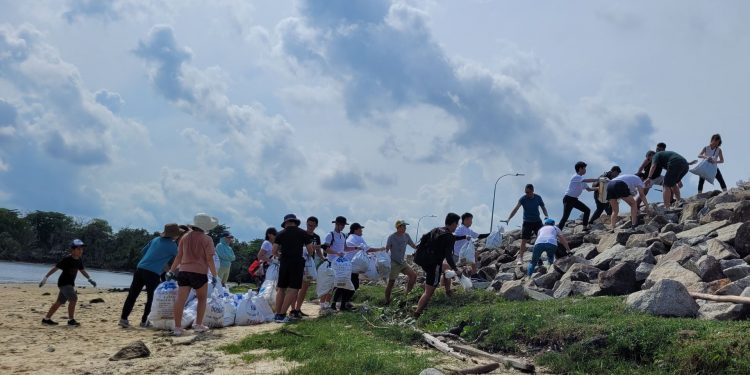One hundred and eighty kilograms or the weight of three average Singaporeans — that was how much marine litter was picked up by volunteers at Yishun Dam on the World Cleanup Day, 17 Sep.
The aim of the cleanup on Saturday, organised by educational consultant Green Nudge and UNIQLO Singapore, was to promote sustainability. About 30 volunteers got their hands dirty, with another 30 waiting in the wings to do the same on 24 Sep.
“UNIQLO joins multi-sectoral partners in making positive changes for our marine environment, which is important to protect biodiversity for the long-term sustainable development of Singapore … We look forward to inspiring everyone to join us in protecting our precious oceans and their rich marine biodiversity,” said Senior Director for Sustainability at UNIQLO Singapore Hwee Lee.
“In the last two to three years, there’s been increased awareness and attention about sustainability, particularly marine litter. We are seeing a lot more cleanups carried out by ourselves, with different companies,” said founder of Green Nudge Heng Li Seng. He added that the move, carried out by a commercial company for its customers, is a relatively uncommon one.
3Ps: People-Private-Public
In June 2022, the Ministry of Sustainability and the Environment (MSE) published its first National Action Strategy Addressing Marine Litter In Singapore, which aims to “summarise and outline Singapore’s various actions and measures to combat the issue of marine litter across six priority areas”.
Part of the strategy included the collaboration of people, private companies, and public agencies.
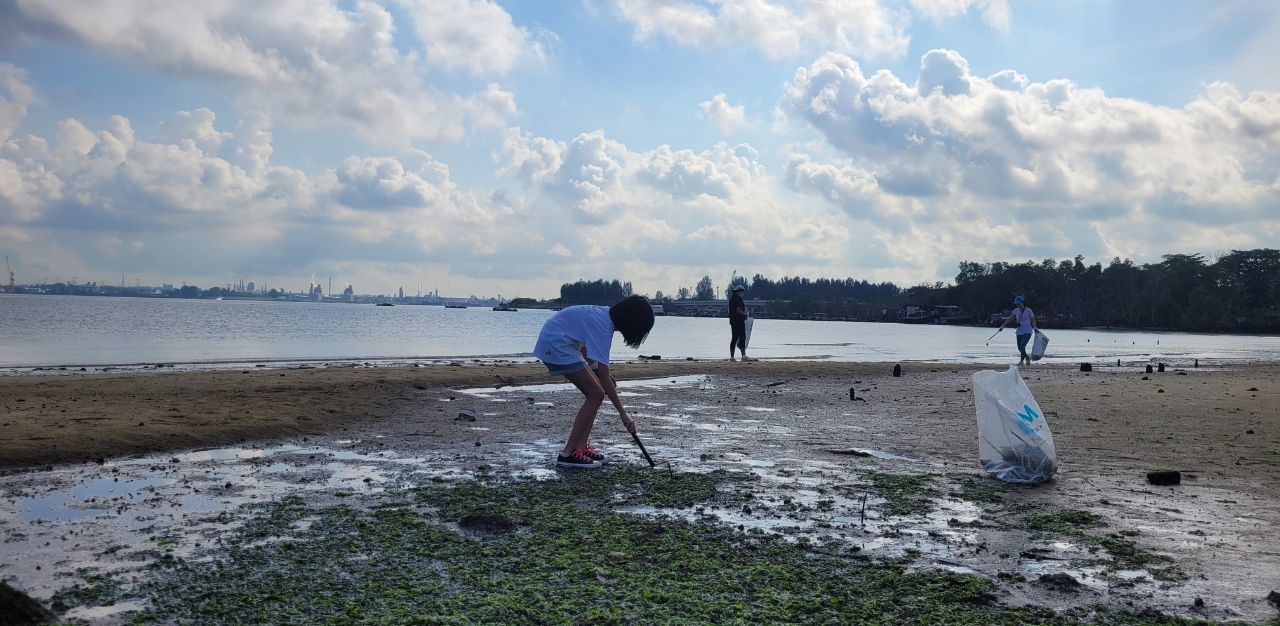
Mr Heng said that many companies are at the stage where they are trying to engage their customers.
“Consumers might not always be homogenous, likewise for companies. It’s very heartening that companies are taking the time to engage the customers. Usually the transactions with customers are one-way, but right now the two parties are taking the time to work together,” he said.
This trust goes a long way when claims about greenwashing are rife. Greenwashing is a form of advertising or marketing spin in which green PR and green marketing are deceptively used to persuade the public that an organisation’s products, aims and policies are environmentally friendly.
DPM Heng Swee Keat noted its impacts in the financial sector in June and the Monetary Authority of Singapore (MAS) has introduced guidelines that are taking effect in January 2023 to reduce greenwashing risk.
“I cannot deny that there are companies that steer towards greenwashing. There is a risk of that. As consumers, we need to be more curious about what is being put out and ask more questions as well,” said Mr Heng of Green Nudge.
In addition to the cleanup, UNIQLO Singapore pledged a cash donation of S$20,000 to protect marine biodiversity in Singapore. The donation will be channelled to the Garden City Fund’s Plant-A-Coral, Seed-A- Reef Programme, which supports the habitat enhancement efforts at the Sisters’ Islands Marine Park.
According to Mr Heng, approximately 800 metre stretch of coastline along the dam is designated state land and is not publicly accessible. This means official approval is needed to organise a cleanup there.
“Because of that, cleaners don’t come here very often and so the trash accumulates fairly regularly. When we have a group of individuals that really support us, we like to bring them to these areas where the help is meaningful,” said Mr Heng.
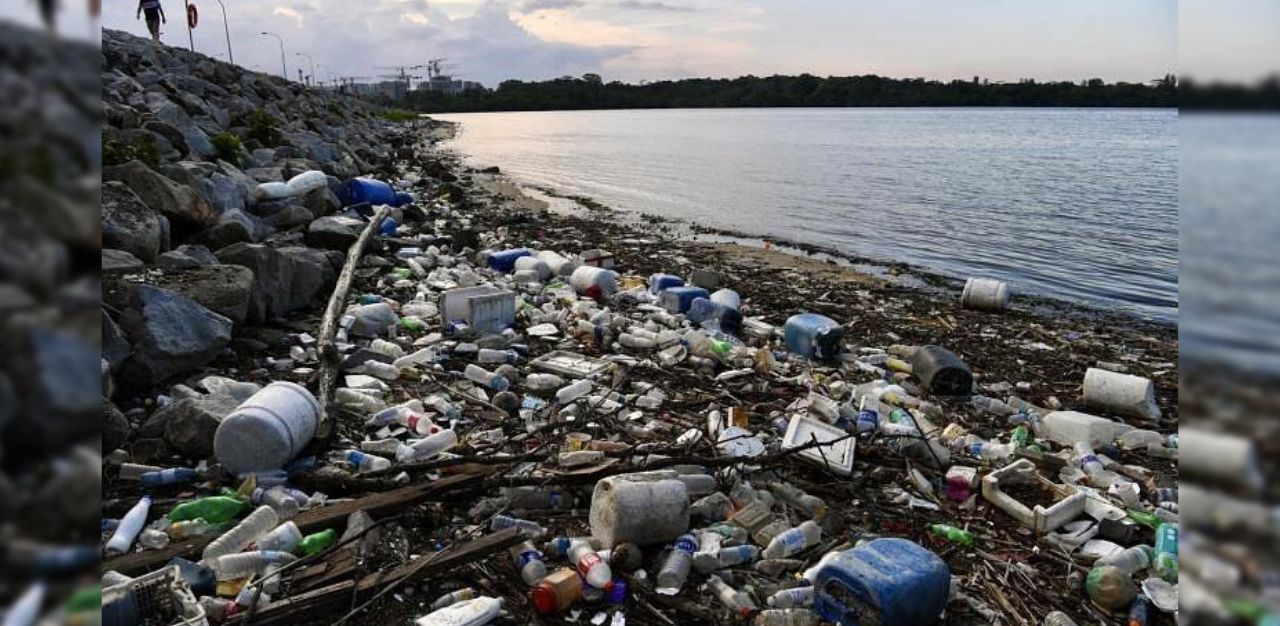
Yishun Dam was built in 1983 to separate the fresh water in the Lower Seletar Reservoir from the sea. In April 2020, the Maritime and Port Authority of Singapore (MPA) confirmed a four-day cleanup of the area after reports of the accumulation of large amounts of trash there.
“Because we’ve built some level of credibility and trust with the public agencies, we can approach them to let us do something about it,” said Mr Heng.
Mr Heng adds that marine litter found around the different coastlines of Singapore are results of human activities as well as the tides. In June 2021, copious amounts of trash were reported around the waters of Marina South Pier which was attributed to the timing of the Southwest Monsoon.
In Aug 2021, Minister of State for Sustainability and the Environment Desmond Tan said in a parliamentary reply that the National Environmental Agency (NEA) cleared an average of about 3,500 tonnes of marine debris that washed onto our beaches each year in 2019 and 2020, while the Maritime and Port Authority of Singapore (MPA) collected, on average, about 1,000 tonnes of flotsam from the sea each year. He was responding to MP for the Nee Soon GRC Louis Ng’s query on marine debris.
Mr Tan added that apportioning the data on marine litter to different sources is “inherently challenging as there is currently no internationally accepted methodology to conclusively determine the origins of transboundary marine litter”.
A two-year study conducted by the NEA to understand the levels and pathways of marine litter and microplastics in the waters in and around Singapore was announced to support recommendations for future initiatives.
World Cleanup Day 2022
Among the litter picked on 17 Sep, some surprising finds included a mouth guard, umbrella, and a drawer, while the most common sights were styrofoam packaging, plastic bottles, and plastic straws. The 180kg collected was sent to be sorted, recycled, and properly disposed of.
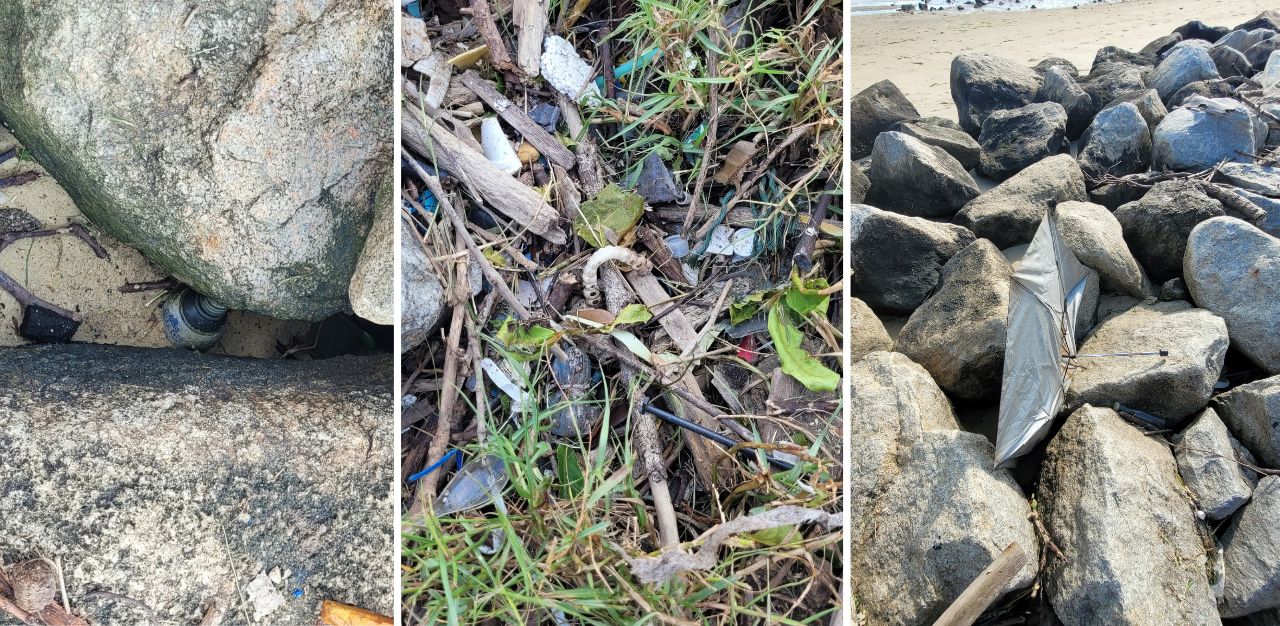
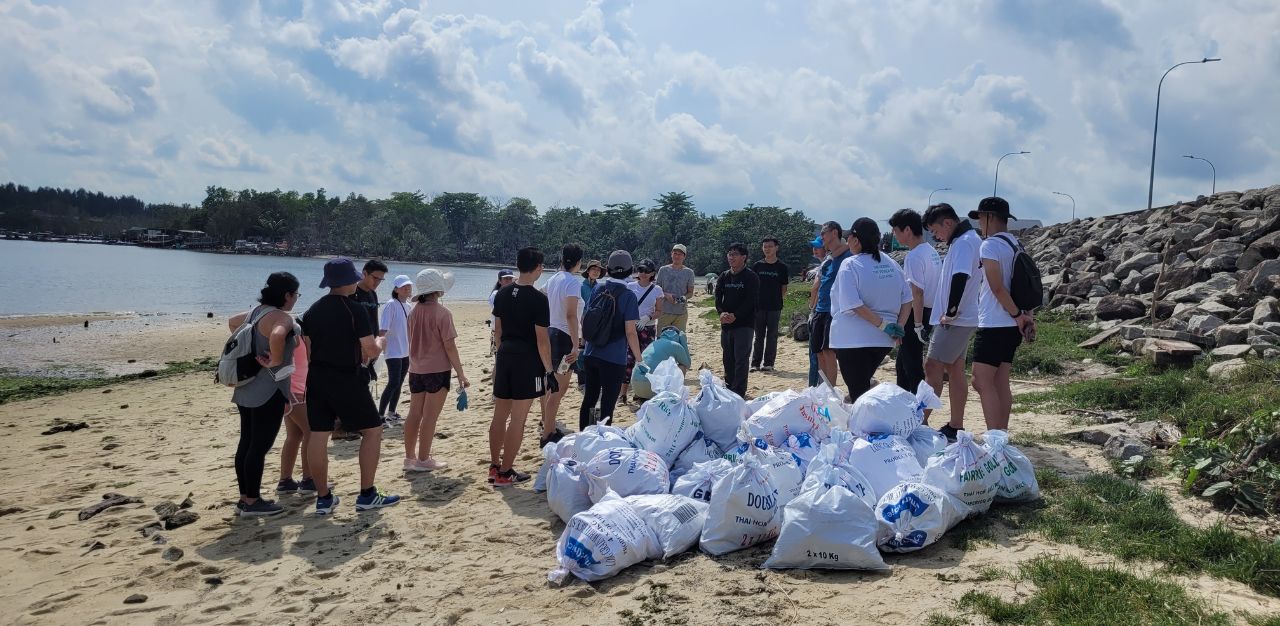
“This is my third time joining such an initiative. I find it very meaningful as it creates awareness for sustainable living and a greener future. If everyone could adopt such practices and spread the message, I think we’ll have a cleaner home and future,” said participant Gary Peh.
Mr Peh, who joined his first cleanup earlier in the year, said that he has since been more conscious of his use of single-use plastics and disposing of his litter.
“My first experience at a cleanup was a shocker. There’s too much rubbish for a group of even 50 to clean up. We need more people and clean more frequently to have a greater impact,” he added.
For people looking to make a conscientious start towards a more sustainable lifestyle, Mr Heng said, “lesser but better”.
“If you’re someone who’s starting out, it’s helpful to understand what’s happening. Buy less but better quality items. For those who are already aware, take part in engagements and sharing with others. Leverage your roles as a consumer to engage with companies politely where there can be room for improvement. To do it together, companies will start to shift,” he said.
RELATED: What’s up with the OneMillionTrees Movement?
Join the conversations on TheHomeGround Asia’s Facebook and Instagram, and get the latest updates via Telegram.



